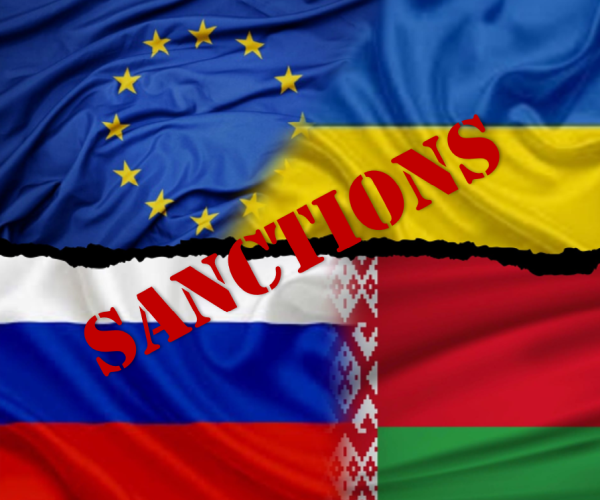19° PACKAGE OF SANCTIONS
On 23 October 2025, the 19th package of restrictive measures against Russia was adopted, which includes Regulation 2033/2025, amending Regulation 833/2014, as well as Regulations 2035/2025 and 2037/2025, which amend Regulation 269/2014.
A) The Energy Sector
As of 25 April 2026, it is prohibited to purchase, import, or transfer classified liquefied natural gas if it originates from or is exported from Russia. The ban will apply from 1 January 2027 if the purchase, import, or transfer occurs under a natural gas supply contract concluded before 17 June 2025.
In addition, the new measures remove the previous exemptions that allowed the import into the EU of oil and gas from the Russian companies Rosneft and Gazprom Neft.
The ban on transactions extends to any port or lock located in third countries other than Russia if such infrastructure is used to transfer unmanned aerial vehicles (UAVs) or missiles to Russia, circumvent the oil price cap through irregular or high-risk shipping practices, or for the circumvention of other restrictive measures.
B) The Financial Sector and Crypto-Assets
As of 25 June 2024, EU entities are prohibited from connecting to the Russian financial messaging system SPFS, and as of 25 January 2026, to all Russian payment systems, including Mir and the Fast Payment System (SBP).
Transactions with individuals or entities listed in Annex XLIV, as well as with non-EU entities that could undermine the objectives of the EU prohibitions, including credit institutions, financial entities, and crypto-related services, are prohibited. The restrictions also apply to mirror or successor entities that replicate the activities, brands, ownership structures, or technical infrastructure of the prohibited entities.
The restrictions on financial services include crypto-assets, the issuance of payment instruments, processing of payment transactions, payment order services, and the issuance of electronic money.
C) The Commercial Sector
To facilitate the divestment and wind-down of commercial activities, the Regulation broadens the authorities’ ability to authorize operations involving goods, technologies, and services connected to Russia.
Until 31 December 2026, authorities may decide to authorize the sale, supply, or transfer of goods and technologies if strictly necessary for the divestment or wind-down of activities in Russia.
Furthermore, as of 25 January 2026, provisions will enter into force to regulate economic relations with certain zones of Russia, prohibiting the acquisition or increase of ownership and control of entities resident in those areas, as well as the creation of joint ventures, branches, or offices, and the conclusion of contracts relating to goods, services, and intellectual property.
D) Other Restrictions on Services, Technologies, and Infrastructure
Temporary exemptions are provided for the import of certain goods intended exclusively for Hungary, on the condition that they are not resold to other Member States or third countries.
For goods classified under CN code 2901 10 00, the application of exemptions has been extended for contracts concluded before 24 October 2025, concerning specific industrial and technological goods, with deadlines up to January or April 2026.
The Regulation introduces extended prohibitions on the provision of services and software to the Russian government and to legal persons, entities, or bodies established in Russia, including legal, accounting, and administrative consultancy, engineering and construction, advertising, IT services, commercial space services, artificial intelligence, and high-performance computing. Services related to tourism and the provision of specific management, industrial, and banking software are also prohibited.
Finally, a five-year ban is established on the sale, supply, or conclusion of contracts involving the transfer of insurance risks related to ships or aircraft previously operated by the Russian government or by legal persons, entities, or bodies established in Russia.
E) Freezing of Funds and Resources
The Regulation updates the annex containing the list of natural and legal persons, entities, and bodies subject to restrictive measures, including 22 individuals and 42 entities subject to the freezing of funds and economic resources.
Furthermore, the definition of “controlling” a legal person, entity, or body has been extended to also include “bodies.” Criteria for identifying control include, for example, the power to appoint or remove the majority of members of administrative bodies, the ability to exercise dominant influence, unified management, and the sharing of financial liabilities.
F) Extension of Measures to Belarus
In line with previous practice, the 19th sanctions package also extends to Belarus certain provisions concerning trade, finance, and services that are already included in the sanctions regime against Russia.
